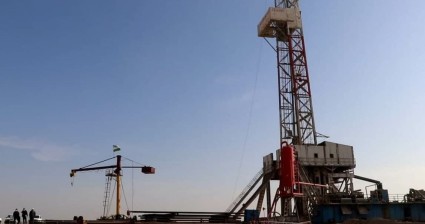Deputy PM/Minister of Economic Development and Poverty Reduction Jamshid Kuchkarov spoke at the second International Economic Forum in Samarkand on November 3 about what Uzbekistan bankinf environment would be like in five years.
American journalist Ryan Chilcot turned to the Deputy Prime Minister and asked a question:
“Let's imagine that I am a potential investor. I came to the Uzbekistan economic forum for the second time, and everything went perfectly, especially the pilaf was excellent. But I'm still not sure whether to invest in Uzbekistan or not. What would you say about what will happen in the country in the next five years to convince this investor that now is the right time to invest in Uzbekistan?”
While Jamshid Kuchkarov was preparing to answer, the journalist added jokingly: “If I am asking such difficult questions, this is probably my last participation in this forum.”
The Deputy Prime Minister expressed hope that the Uzbek economy would become "greener" in five years. “By then we will have replaced all the old power plants. Secondly, there will be only one state bank and it may have some outstanding shares."
“Besides… you know, Ryan, next time we won’t invite you… Ask me easy questions about when I was born, what university I graduated from,” the minister said to laughter and applause in the hall.
The journalist also joked in response: “In my first question, if you remember, I asked what you can guarantee next year. And we got the answer: I won't be at the next forum” (with a laugh).
Further, the Deputy Prime Minister outlined the economic goals defined in the New Uzbekistan’s Development Strategy for 2022-2026.
“[The strategy] covers almost all areas. Specific goals have been set for each area. We are economists, so the first thing we pay attention to is GDP. Our goal is to reach $100 billion in GDP [in five years], and we hope that it will be achieved. It will also cut the poverty rate in half. GDP per capita will be $2,800. Everyone sitting here knows what this means: it’s not just that $100 billion is a beautiful figure,” he said.
Jamshid Kuchkarov said that this year GDP per capita will exceed $2,000.
“This is the result of many years of hard work of our people. I think that bringing this figure to $2800 would be a good result. After that, our goal will be $4,000,” he said.
The Deputy Prime Minister added that international experts participating in the forum were involved in the development of the Development Strategy, and their recommendations and reports were taken into account. “Therefore, I would say that this is our joint strategy. We will move in this direction,” he concluded.
World Bank Vice President for Europe and Central Asia Anna Bjerde noted that Uzbekistan had been carrying out more reforms in a short period than other countries. However, she says there is still much to be done, and some reforms are slower than others. For example, progress has been made in the privatization of small companies, but this does not apply to medium and large state-owned enterprises and banks.
“We think there is a lot of preparatory work to be done for this, but now is really the time to focus on the privatization and restructuring of state-owned enterprises and state-owned banks,” she said.
Anna Bjerde also touched upon shortcomings in human capital development projects, including the reform of education, healthcare and social protection.
She noted that very few countries had completed the transition to a market economy, increased GDP growth and become a country with a higher income without increasing the share of the service sector in the economy.
“Uzbekistan actually has a surprisingly low contribution [of the service sector to GDP] compared to other countries – about 30%. The average for Europe and Central Asia is more than 50%. Even countries in Central Asia have a higher rate,” she said.












